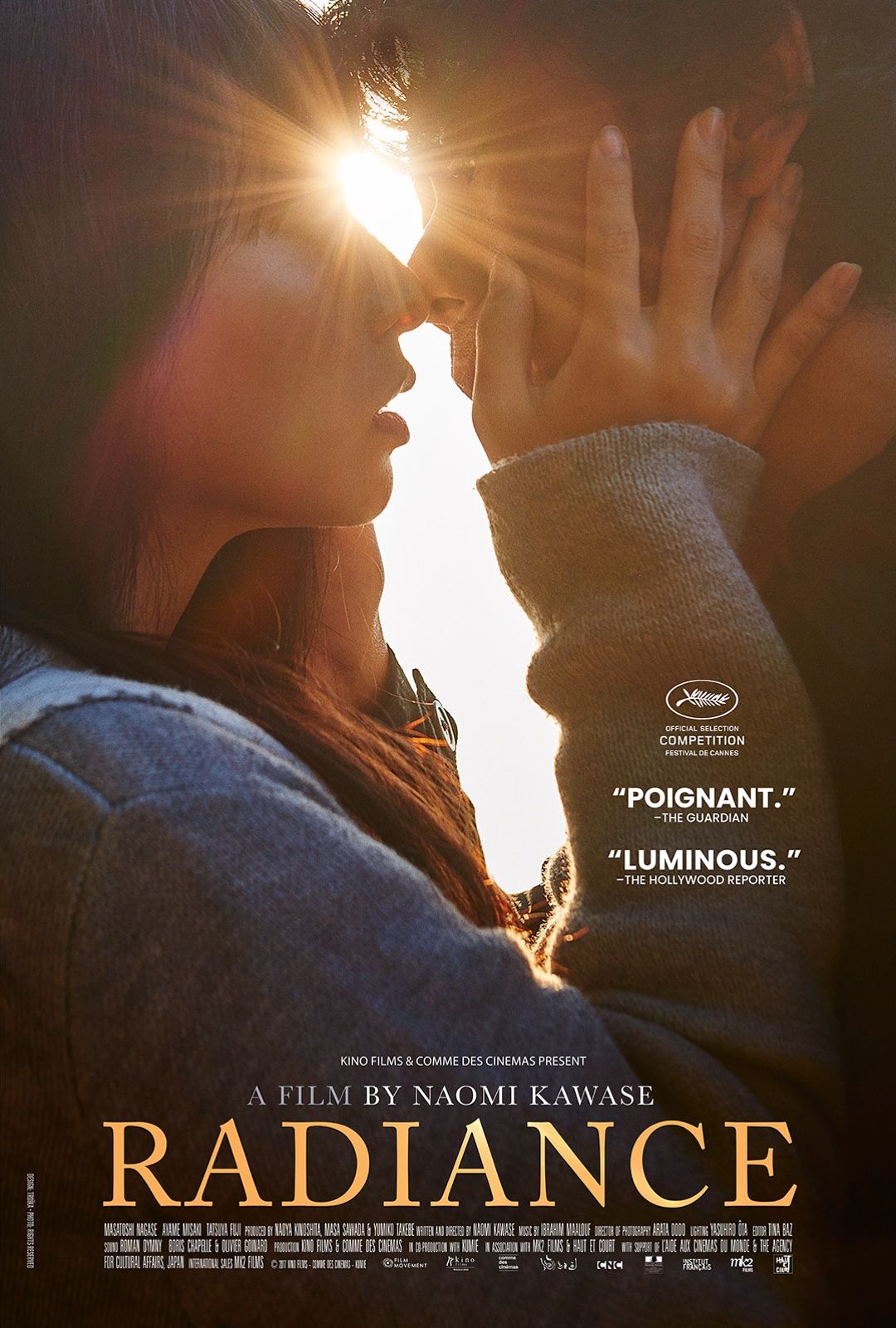Eye For Film >> Movies >> Radiance (2017) Film Review
Radiance
Reviewed by: Jennie Kermode

Sometimes, when two people with very different experiences meet, it is not enough simply to arrive at the same place in space and time; each must still undertake a journey to find the other.
Misako (Ayame Misaki) makes her living by providing various forms of assistance to blind and visually impaired people. She’s trying to break into the art of audio description for films, but it’s difficult. Whilst other blind people try to be polite, photographer Masaya Nakamori (Masatoshi Nagase) gives it to her straight: he doesn’t think that she’s cut out for it. She’s too poetic. Her subjective emotions get in the way of allowing blind audience members to use their imaginations, whilst she makes so many observations that there’s no opportunity left for quiet contemplation.

Nakamori badly needs that kind of space. He’s struggling to come to terms with the gradual loss of his sight, trying to keep on working for as long as he can, though he has only a little bit of blurry peripheral vision left. He has rented a flat with as much sunlight as possible, suggesting that until recently he was still able to appreciate its glow, but early on in the film we observe him losing track of time, having worked right through the night and not realised that the sun has risen. Like many newly disabled people, he’s angry, prickly in his interactions with others. There’s a brusque physicality to him which his acquired vulnerability has done nothing to erode, yet his connection to the world requires something gentler. In a pivotal scene, he photographs children in a playground. They’re intrigued but skittish, one of them darting away as the shutter clicks. Life seems to be slipping away, and yet somehow, despite the discomfort of their initial encounter, Misako is getting closer.
She’s an earnest young thing, the sort of person who bows whilst talking on the phone, always trying to hard that she get in her own way. Again and again, people try to advise her that less is more. Nakamori’s preoccupation with his own situation means she simply cannot communicate with him as she has with others. He doesn’t want her help, but as a result, she can learn more from him than anybody else. This gradually forces her into her own past and a confrontation with her own feelings of guilt, in a magical realist touch which makes full use of director Naomi Kawase’s trademark skill with dazzling and uncertain light.
It’s a love story of sorts, but one which demands a lot more of its protagonists – and its audience – than most of its ilk. Kawase brings us in so close at times that we are pushing up against the characters, deprived of our personal space. When Nakamori takes Masako to a favourite spot in the woods, the sound builds up, harmonious yet almost overwhelming, suggesting the way that his focus is shifting between senses, his previous disconnection abandoned as he feels a sudden need to connect which obliterates everything else. Later we encounter light so strong that one might feel it, in the form of fire. What was loved and lost must make way for something new, but birth is always painful.
Where sunrise stole up on us, again and again we see the sun setting, the long light of evening. When that golden orb slips below the horizon, one can still see its radiance. Informed and thoughtful, demanding and graceful, Radiance is Kawase at her best.
Reviewed on: 28 Apr 2023

















